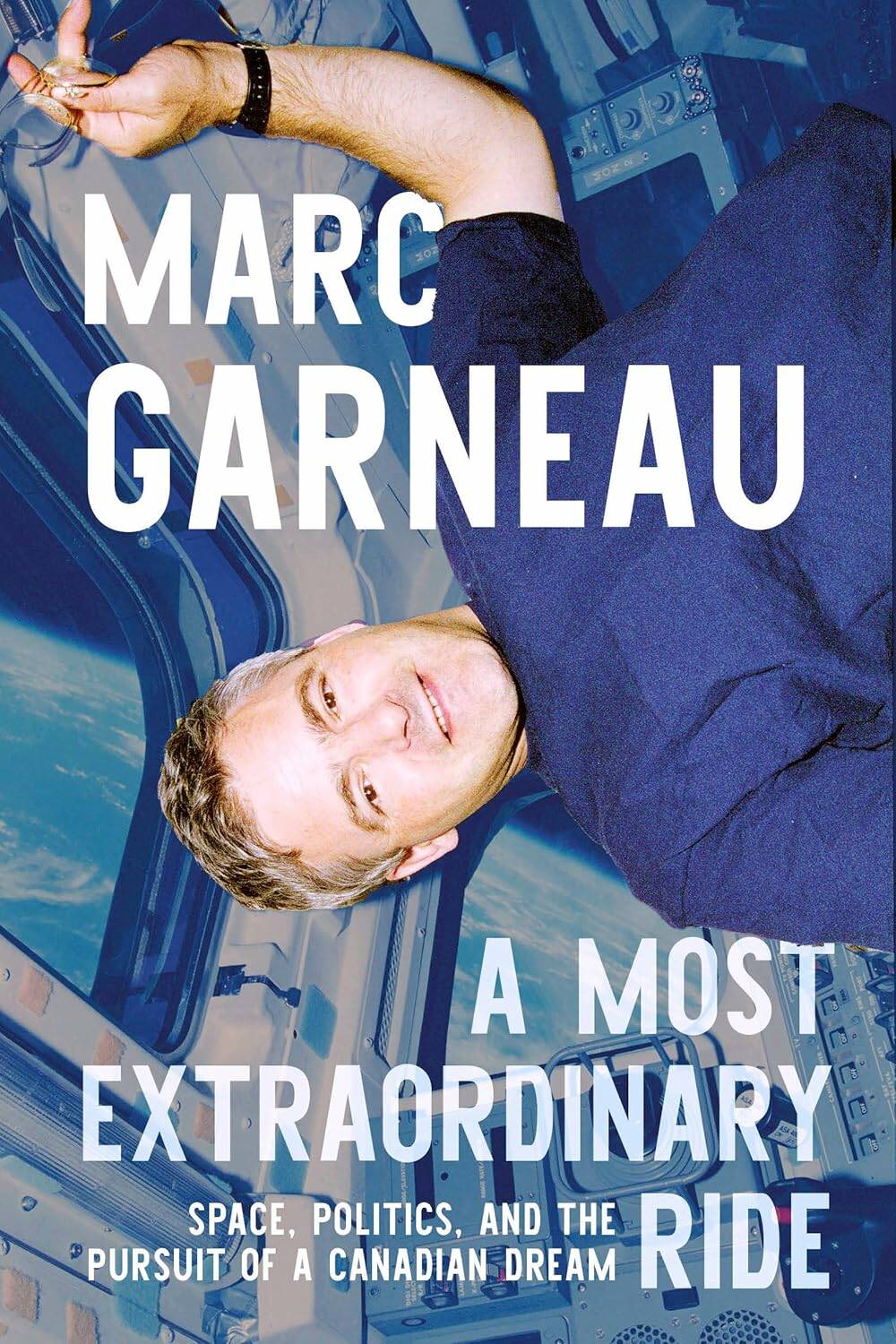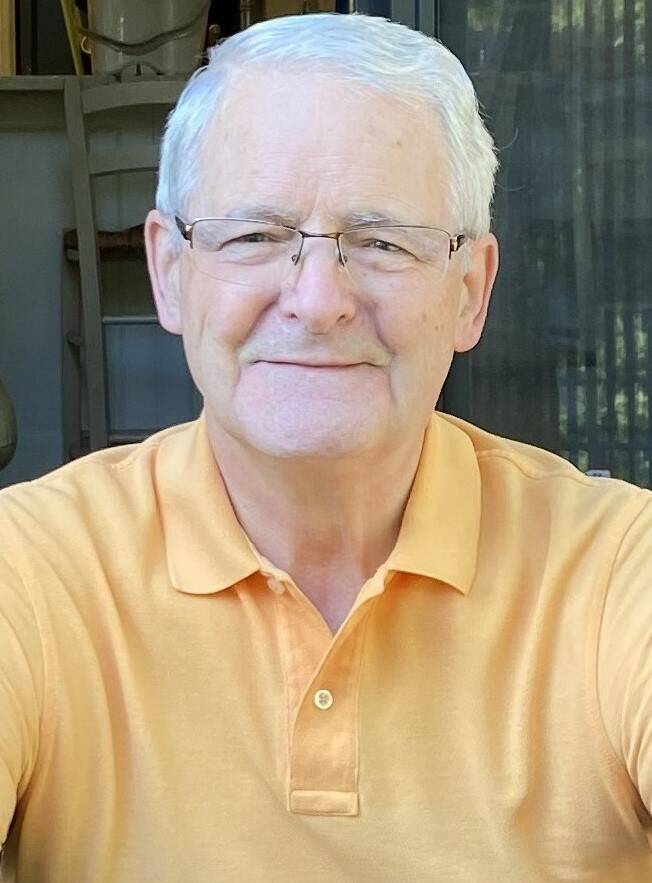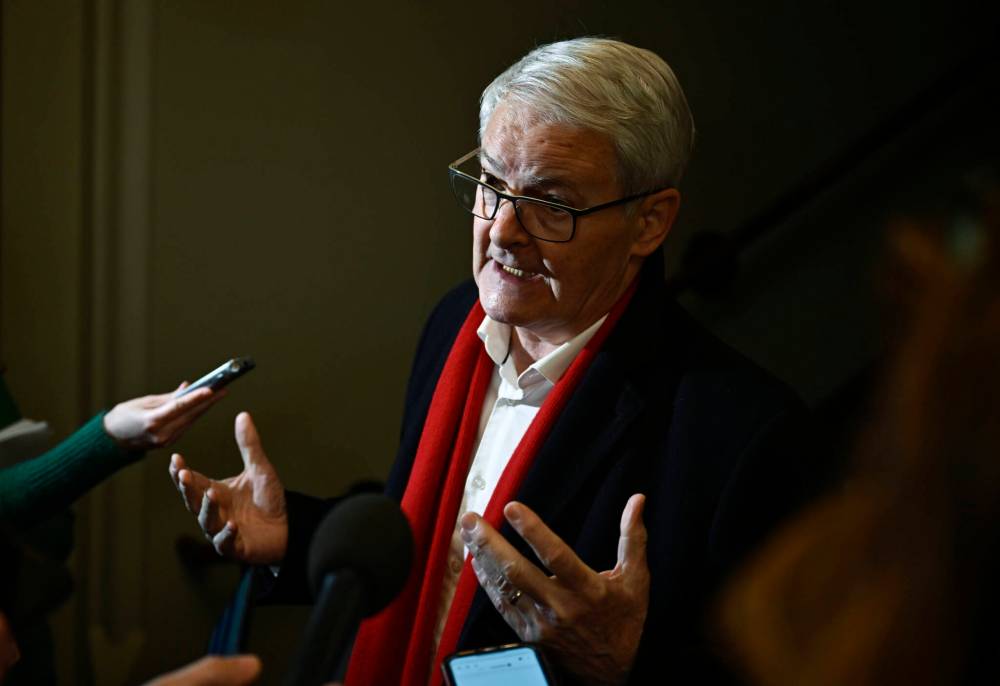Down to Earth from outer space
Canada’s first astronaut writes about science, politics and the importance of informed decisions
Advertisement
Read this article for free:
or
Already have an account? Log in here »
To continue reading, please subscribe:
Monthly Digital Subscription
$1 per week for 24 weeks*
- Enjoy unlimited reading on winnipegfreepress.com
- Read the E-Edition, our digital replica newspaper
- Access News Break, our award-winning app
- Play interactive puzzles
*Billed as $4.00 plus GST every four weeks. After 24 weeks, price increases to the regular rate of $19.95 plus GST every four weeks. Offer available to new and qualified returning subscribers only. Cancel any time.
Monthly Digital Subscription
$4.99/week*
- Enjoy unlimited reading on winnipegfreepress.com
- Read the E-Edition, our digital replica newspaper
- Access News Break, our award-winning app
- Play interactive puzzles
*Billed as $19.95 plus GST every four weeks. Cancel any time.
To continue reading, please subscribe:
Add Free Press access to your Brandon Sun subscription for only an additional
$1 for the first 4 weeks*
*Your next subscription payment will increase by $1.00 and you will be charged $16.99 plus GST for four weeks. After four weeks, your payment will increase to $23.99 plus GST every four weeks.
Read unlimited articles for free today:
or
Already have an account? Log in here »
Hey there, time traveller!
This article was published 19/11/2024 (468 days ago), so information in it may no longer be current.
In June 1983, Marc Garneau was at home leafing through the Ottawa Citizen when he stumbled upon an ad placed by the National Research Council of Canada whose headline read “Canadian Astronaut Program.”
It was a chance find that would alter the trajectory of his life.
At the time a naval officer and instructor, Garneau wondered whether he had the right stuff. He applied and, after navigating months of interviews and tests, was selected as one of Canada’s first six astronauts. The following year, he’d be the first of that group to go to space, capturing the imagination of Canadians young and old.
Chris O’Meara / The associated press files
Marc Garneau heads to the launch pad Nov. 30, 2000. The former MP brings his experience in space and the House of Commons to bear in A Most Extraordinary Ride: Space, Politics, and the Pursuit of a Canadian Dream.
Garneau would be part of three off-world missions in his career as an astronaut before eventually touching down in the House of Commons in 2008, where he spent time as a Liberal MP, as well as Minister of both Transport and Foreign Affairs before retiring in 2023.
He’s chronicled both aspects of his career, as well as his early years and personal life, in his memoir A Most Extraordinary Ride: Space, Politics, and the Pursuit of the Canadian Dream, published in early October by McClelland & Stewart. Garneau lands in Winnipeg tomorrow to launch the book at McNally Robinson Booksellers’ Grant Park location, where he’ll be joined at 7 p.m. in conversation by Free Press editor Paul Samyn.
Writing a memoir allowed Garneau, now 75, to share aspects of his life beyond the halls of the House of Commons and the cockpit of the space shuttle.
“People know a lot about me as an astronaut, and they know a lot about me as a politician, but I wanted to sort of show them the complete person — that includes being a young, slightly rebellious kid who made a number of mistakes, some of them pretty stupid, partly driven by my sense of curiosity and adventure,” he explains from his home in Montreal prior to his Winnipeg appearance.
“Those were important learning experiences for me, and I wanted to share them — everybody has those moments in their life, and if you’re surrounded by people like parents and teachers, you can get back on track and learn something from your mistakes.”
Garneau’s book came out nearly 40 years to the day after his first mission into space as a payload specialist on shuttle mission STS-41-G on Oct. 5, 1984. He would return to space twice more, in 1996 and 2001, before taking an appointment at the Canadian Space Agency.
In his first foray into space, he felt the weight of the nation on his shoulders.
“I knew that in Canada, all eyes were on me that morning. While I was in space, I wanted to make Canadians proud, and I didn’t want to screw up, which might affect (NASA’s) judgment about whether they’d want to fly other Canadians. I’m very proud of the fact things went well.”

Eight other Canadians have followed Garneau beyond Earth’s orbit, undertaking missions as part of the space shuttle program (which was retired in 2011), as well as on the International Space Station.
“Most exciting these days is the fact that one of our Canadians, Jeremy Hanson, will get a chance to go on the Artemis II mission that will fly around the moon. Now that’s taking it to a new level,” Garneau says of the mission slated for September 2025.
Garneau sees challenges when it comes to Canada’s role in the changing landscape of space travel, including partnerships with the private sector.
“We were a pioneer in space. Back in the 1960s, we were the third country to build and to design and build a spacecraft (after the U.S. and the Soviet Union), we were pioneers in communication satellites to link all Canadians … we were pioneers in Earth observation using radar satellites, in developing robots, robotic arms,” he says. “I fervently hope Canada will continue to be an innovator, to actively spend on its space program — it’s allowed to innovate, to export some of the things we’ve made. But the competition is different now.”
The back half of A Most Extraordinary Ride details Garneau’s time in the House of Commons — first in 2008 as a Member of Parliament with the opposition Liberals under leader Stéphane Dion, and eventually as part of government under Prime Minister Justin Trudeau in 2015.
Garneau served as Minister of Transport from 2015-2021 before being moved to Foreign Affairs, where he lasted seven months before being dumped from the position after that year’s election, a move he describes as feeling like “a punch in the gut.”
Garneau’s relationship with Trudeau never seemed to warm up after he ran against the future Liberal leader to head the party in 2013, and the two had few face-to-face meetings.
Among the significant challenges Garneau faced in Transport were the fallout of the 2013 rail disaster in Lac-Mégantic, Que., the 2018 Humboldt Broncos bus crash in Saskatchewan, and plane crashes involving Canadians in Ethiopia and Iran, the latter of which was a result of the plane being shot down as it departed from Tehran.

Supplied photo
Marc Garneau would be part of three off-world missions as an astronaut and then, later, a Liberal MP.
He also spearheaded green initiatives when it came to transportation in Canada, including purchasing incentives for electric vehicles.
And while his time at Foreign Affairs was brief, it memorably included the September 2021 return of Michael Spavor and Michael Kovrig, known as the two Michaels, following their 2018 detention and arrest in China.
“One of the sweetest moments was to be on the tarmac at the Calgary airport that morning, about five o’clock in the morning, when the plane landed and brought the two Michaels back after 1,019 days in prison.”
With an election looming, Garneau sees a similar fatigue with the current government among voters that brought down Stephen Harper and, before him, the Liberals under Jean Chrétien and Paul Martin.
“I would say this to Canadians: make sure when you decide which party to vote for, that you’re not going to just choose a party that complains about what’s wrong with the country, but that actually offers its own solutions,” he says of Progressive Conservative Party leader Pierre Poilevre.
“Mr. Poilievre has certainly pointed out a lot of things he doesn’t like, and that he’s going to change, but I’ve heard precious little about what he’s going to put in its place … the parties owe it to Canadians to let them know ahead of time what they plan to do, so Canadians have the opportunity to make an informed decision.”
Garneau’s closing words to the House of Commons as an MP stressed the need for members to respect their fellow colleagues, to “criticize by all means, but do it with respect and maybe even wit.”
A year later, it’s a message he sees as having largely fallen on deaf ears.

Justin Tang / The Canadian Press
Marc Garneau arrives for a caucus meeting on Parliament Hill in Ottawa last year.
“It’s kind of sad — I know all of the MPs in the House of Commons are capable, but it seems they have to relearn that lesson about trying to conduct the business of the nation in a civilized manner,” he says.
“Criticize, but do it in a way that the Canadian public sees as a vigorous debate, as opposed to kids arguing in the sandbox … obviously my words didn’t stick very long in the minds of people.”
books@freepress.mb.ca
@bensigurdson

Ben Sigurdson
Literary editor, drinks writer
Ben Sigurdson is the Free Press‘s literary editor and drinks writer. He graduated with a master of arts degree in English from the University of Manitoba in 2005, the same year he began writing Uncorked, the weekly Free Press drinks column. He joined the Free Press full time in 2013 as a copy editor before being appointed literary editor in 2014. Read more about Ben.
In addition to providing opinions and analysis on wine and drinks, Ben oversees a team of freelance book reviewers and produces content for the arts and life section, all of which is reviewed by the Free Press’s editing team before being posted online or published in print. It’s part of the Free Press‘s tradition, since 1872, of producing reliable independent journalism. Read more about Free Press’s history and mandate, and learn how our newsroom operates.
Our newsroom depends on a growing audience of readers to power our journalism. If you are not a paid reader, please consider becoming a subscriber.
Our newsroom depends on its audience of readers to power our journalism. Thank you for your support.

